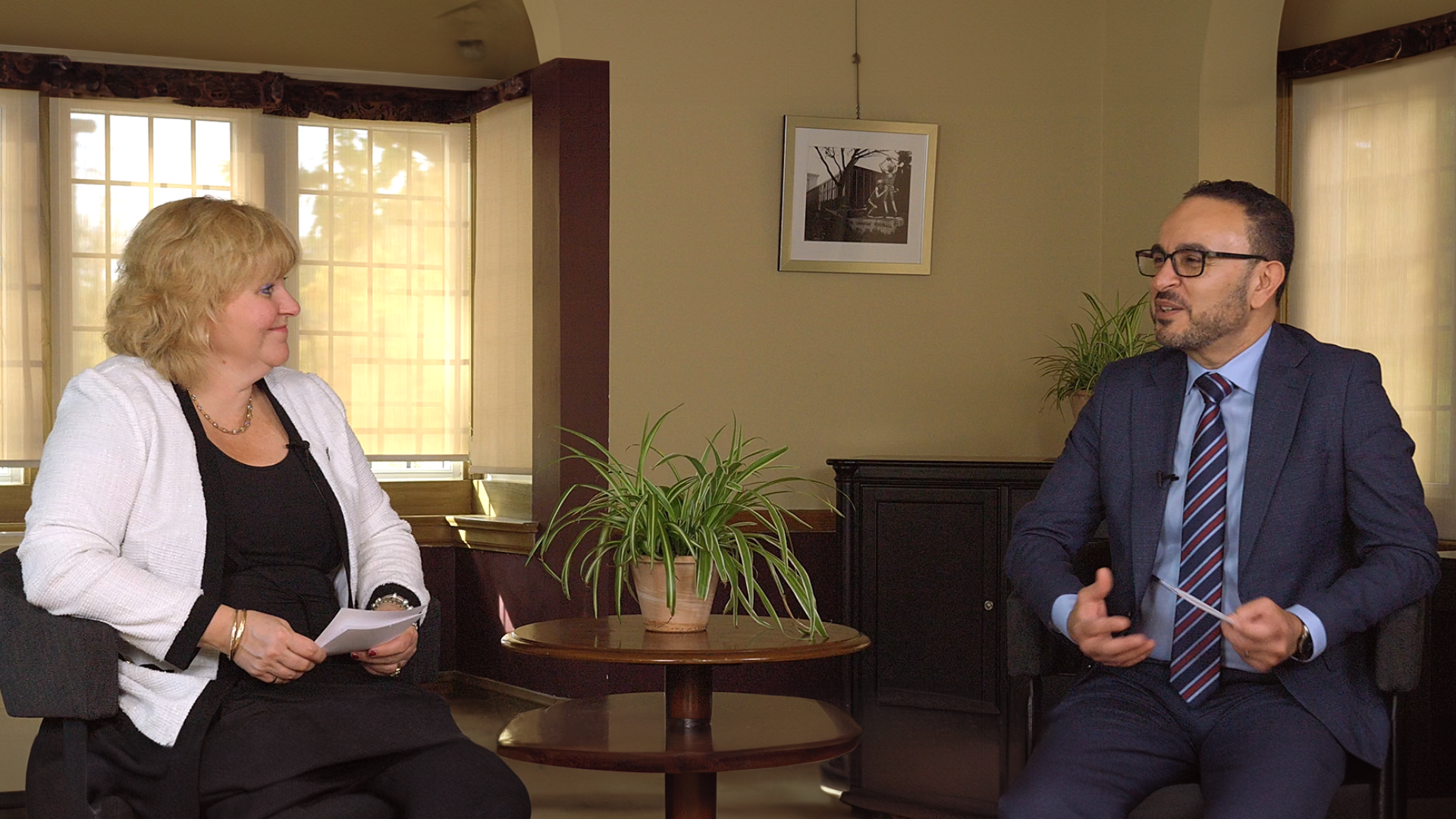DEVELOPMENT HUMAN RESOURCES AND MANAGEMENT STRATEGIC PLAN | TEACHING AND LEARNING
Using Custom Professional Development Opportunities to Develop Leaders
July 12, 2024 ·
Contributed by: Leah Fleet

Jodie Middleton, Associate Director of Talent Acquisition, Development and Rewards for Niagara Region, shares her experience of implementing a custom professional development program in their organization. Niagara Region worked in partnership with the DeGroote School of Business’ Executive Education team to build a custom program that suits their organizations specific needs.
What motivated you to pursue custom programming for the staff at Niagara Region?
In 2023 we launched our People Plan and we had four key pillars coming out of that plan. One of them is to cultivate strong leaders. The work determined what a strong leader looks like in our organization, and it became apparent that we needed targeted learning. We were clear on what we wanted our leaders to become very good at, leading us to the custom learning path.
Why did you choose to work with the DeGroote School of Business?
When we were looking further afield as to who could design a program that would meet our needs, we realized that DeGroote could do that and provide us with excellent customized learning. We met with the team and from there it became easy as they really worked to understand what we needed from a program, the learning outcomes and the facilitation styles. They were willing to work with us to make the capstone project align to our corporate priorities and work well in our environment and with our leaders.
What differences have you heard about or noticed since introducing custom programming to your organization?
I would say it’s the relationships being built across the organization. You have a lot of people who may not otherwise ever work together but through the program they find common benefits, even though they’re doing very different work. They may find commonality on a leadership level, or on a project that one group is doing and say, ‘I think we can benefit from that or add to that’, the synergies are then being created that you are always striving for across your teams. Our leaders are getting a better understanding of the skill sets, tools and resources that are available to them across the organization.
Why is it so important for an organization like Niagara Region to support lifelong learning and professional development?
I think being a learning organization is important to your overall culture. To grow a learning culture, you must help people learn in different ways. You need dynamic learning environments. You need leaders that are dynamic as well in terms of their own professional development, their knowledge, and their ability to evolve as the world around us is constantly changing.
What feedback have you received from program participants?
They are a little concerned going in because of the time commitment. Nobody has extra time, but they love working in a cross-functional environment and working on something that matters. And the thing that always surprises me is the sheer amount of constructive feedback we get about the program. The capstone projects have been invaluable because integrating solutions to real problems into the learning means they are heavily invested in what they’re doing. It’s so practical, and usable, which is highly valued in our environment.
What do you think are the top three business skills municipal employees need to develop?
Agility is one because everything’s always changing around us. We need to be able to respond to whatever is required of us as public sector organizations.
The second one is collaboration and relationship building. The thing that I love about the public sector is you can’t do anything by yourself. You’re so tied to your community partners and your internal partners. You need to continuously build relationships and collaborate with others.
The last one is communication. Are you communicating effectively with your public? Are you communicating effectively internally to the people around you and your internal stakeholders? The importance of effective and clear communication is always there.
Learn more about custom programs offered by The DeGroote School of Business by visiting execed.degroote.mcmaster.ca.
This article originally appeared in Municipal World.














